John Hurrell – 8 May, 2013
Looking at it in The Film Archive space, projected on the end wall, is quite different from using your computer at home. The bigger image and varied sources are immersive but also restless and dizzying. Schultz's version distils Debord's ideas, presenting sympathetic images to accompany a complex text containing dense and insistent language that twists and flips its syntax, revelling in paradox.
Auckland
Heath Schultz
The Society of the Spectacle, 2013
10 April - 9 May 2013
Finishing off this week at Auckland’s Film Archive is an exhibition screening The Society of The Spectacle, not the original b/w 1973 film made by the legendary Situationist, Guy Debord, but a new updated coloured version by Heath Schultz. Schultz has retained the chunks of theoretical text Debord used from his 1967 book of the same name, but revamped much of the filmic imagery to make it contemporary. There are also both typed and dubbed English translations. Though heavily didactic it is also poetic, with the imagery sometimes not obviously linked to the voiceover.
With this original Marxist critique of global capitalism and the mass media it implements to enforce a consumerist, totalitarian and materialistic view of reality, Debord became known as a pioneer thinker and artist hugely influential today. His ideas are extraordinarily prescient. For example, Hou Hanru, the Director of the new Auckland Triennial uses some of his concepts here in an essay for The Lyon Biennale.
Schultz, in his split-screen version of this vehement attack on the dominance of visual manipulation, the power of the marketplace and commodity fetishism, has introduced more contemporary advertisements and updated the fashion, softcore porn, tourism and newsreel content. His film is fifteen minutes shorter, having removed several sections of films from Hollywood and European directors like John Ford, Nicolas Ray and Josef von Sternberg. Portions of more recent movies have been inserted, along with some translated chunks of Peter Watkins’ lengthy 2000 film, The Commune (Paris, 1871). (See a documentary on the making of this remarkable work here, and some untranslated excerpts).
Looking at it in The Film Archive space, projected on the end wall, is quite different from using your computer at home. The bigger image and varied sources are immersive but also restless and dizzying.
Schultz’s version distils Debord’s ideas, presenting sympathetic images to accompany a complex text containing dense and insistent language that twists and flips its syntax, revelling in paradox, often reversing with wit subject and object. The original 1971 b/w film in comparison looks quite historic visually, even quaint, though with some portions dark and distorting through the transferral to video.
Much of Debord‘s argument today seems obviously accurate, and with the changes that Schultz has introduced, it is fascinating to see his interpretations of Debord’s French newsreel film, using for example American television - material I assume is not seen here. (I might be wrong because I watch very little television, and with globalisation being the point, these images might be commonplace.)
There is a paradox because with this and the original critique both being available now online, they themselves as richly complex films provide a mesmerising spectacle for the masses, an ocular treat, ‘selling’ an anti-spectacle idea as a spectacle. Yet the alternative, to be totally anti-ocular, is to throw the baby out with the bathwater and raises questions of anti-pleasure Puritanism, Plato’s suspicion of the visual, and Duchamp’s hostility to the retinal - as if ideas can float in some separate, non-imaging, mental domain.
A valuable resource.
John Hurrell
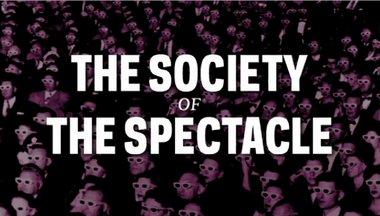
 Advertising in this column
Advertising in this column Two Rooms presents a program of residencies and projects
Two Rooms presents a program of residencies and projects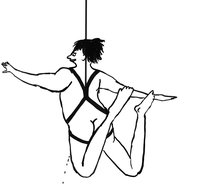
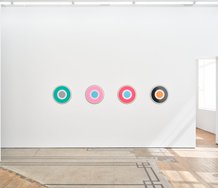
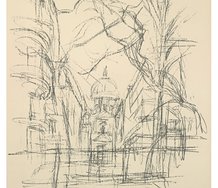
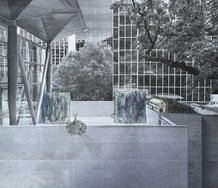
This Discussion has 0 comments.
Comment
Participate
Register to Participate.
Sign in
Sign in to an existing account.